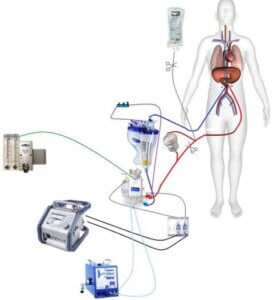Nurse Staffing Crisis: A problem that affects all of us
Nurse Staffing Crisis: A problem that affects all of us
The healthcare staffing crisis is a growing problem that is affecting healthcare systems around the world. It is a complex issue that is caused by a variety of factors, including an aging population, increased demand for healthcare services, and a shortage of healthcare professionals.
One of the main reasons for the staffing crisis is an aging population. As the population ages, there is a greater demand for healthcare services. This increased demand is putting a strain on healthcare systems and is making it difficult for hospitals and clinics to keep up with staffing needs. Additionally, as the population ages, more healthcare professionals are nearing retirement age, and there are not enough young professionals to replace them.
Another contributing factor to the staffing crisis is the growing shortage of healthcare professionals. The demand for healthcare services is increasing, while the supply of healthcare professionals is not keeping pace. This shortage is most acute in certain areas of healthcare, such as nursing, where there is a severe shortage of qualified nurses.
Additionally, the increased complexity and acuity of patients also increase the demand on healthcare professionals, which in turn put additional stress on healthcare systems. The need for specialized care and procedures, and the higher costs of treatments and technology, put further pressure on staffing levels.
Furthermore, economic factors such as stagnant wages and high student loan debt are also contributing to the staffing crisis. Many healthcare professionals are struggling to make ends meet and are leaving the profession, leading to a shortage of qualified professionals.
This staffing crisis has a number of negative consequences for both healthcare professionals and patients. Healthcare professionals are often overworked and stressed, leading to burnout and an increased risk of errors. Patients, in turn, may experience longer wait times for appointments and procedures, and may not receive the same level of care as they would if there were enough healthcare professionals to meet the demand.
To address the staffing crisis, there are several steps that can be taken. One step is to increase the number of healthcare education programs and to provide more financial aid for students interested in pursuing a career in healthcare. Additionally, providing more opportunities for continuing education and professional development can help to retain healthcare professionals in the workforce.
Another step is to increase the number of healthcare professionals in training, by providing more training positions, and mentorship programs. Offering incentives such as bonuses, retirement plans, and other forms of compensation can help to attract and retain healthcare professionals.
It is also important to support and encourage the use of healthcare professionals with diverse backgrounds, as this can help to address the staffing crisis and ensure that the healthcare workforce reflects the diversity of the population it serves.
Additionally, expanding the scope of practice of certain healthcare professionals, such as nurses and physician assistants, can also help to address the staffing crisis by providing more healthcare services and reducing the dependence on physicians.
Finally, healthcare organizations should also be willing to think creatively and creatively about staffing, such as using telehealth and remote monitoring, to meet the needs of patients and healthcare professionals alike.
In conclusion, the healthcare staffing crisis is a serious problem that is affecting healthcare systems around the world. It is caused by a variety of factors including an aging population, increased demand for healthcare services, and a shortage of healthcare professionals. To address the staffing crisis, steps must be taken to increase the number of healthcare education programs and provide more financial aid for students. Additionally, providing more opportunities for continuing education and professional development can help to retain healthcare professionals in the workforce. Furthermore, expanding the scope of practice of certain healthcare professionals, supporting diverse backgrounds and thinking creatively about staffing can also help to address the staffing crisis. It's important for healthcare organizations to actively work to address this issue and ensure that there are enough healthcare professionals to meet the needs of patients.
Contact Us
Let us provide the Nurse Staffing you need.
Our unique ability to provide immediate, and potent emergency nursing coverage, bolstered by our successful track record in staffing health systems around the country makes us an enviable travel nurse staffing partner.





